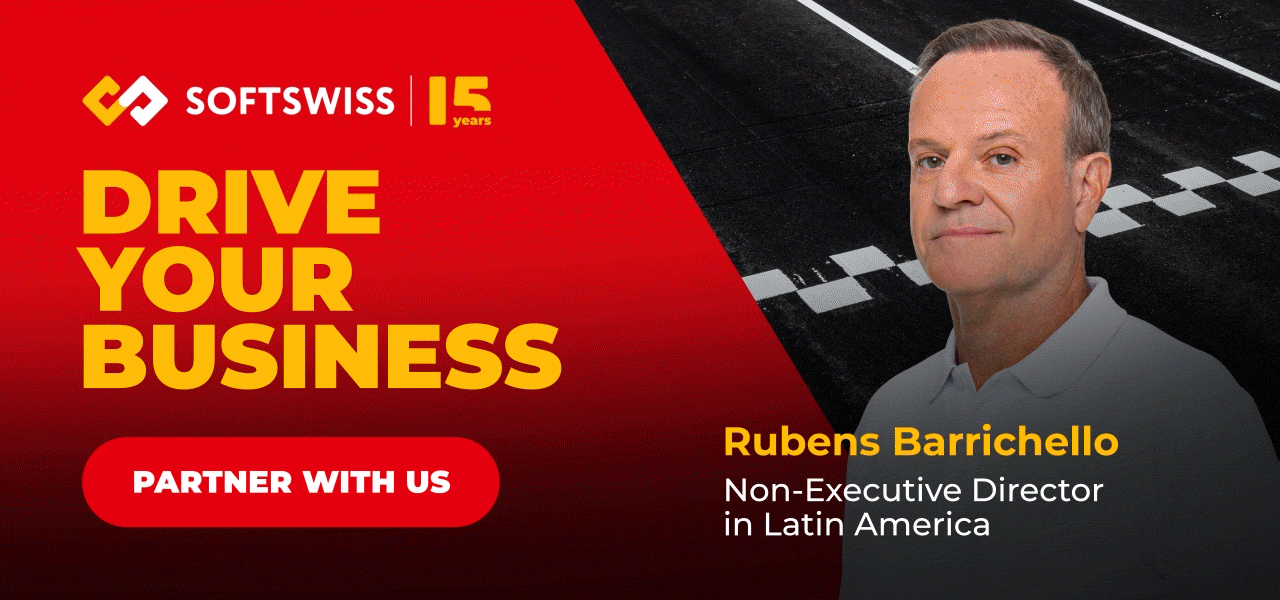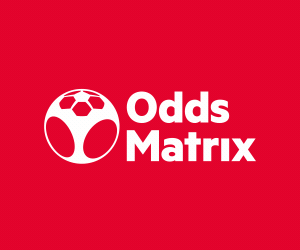Interviews
Tackling data sovereignty
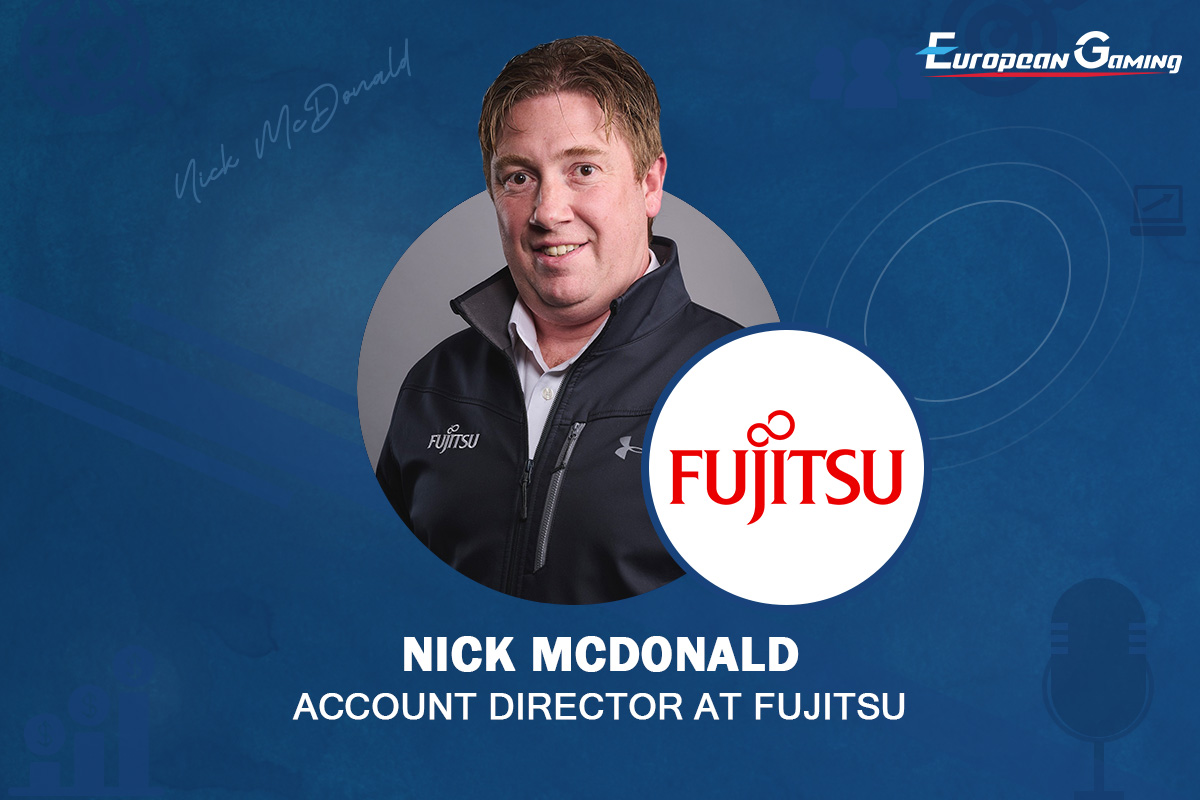
Nick McDonald, Global Account Director at Fujitsu, says that data sovereignty and tightening requirements can cause headaches for online gambling companies but by getting it right they can unlock plenty of opportunities
Data is often seen as the engine that powers this industry forward. But with data collection, storage and transfer being subject to increasingly stringent laws and requirements, it’s becoming increasingly difficult for organisations to unlock the full value it holds. Data sovereignty is something that all businesses need to consider, but especially those with an international footprint. To learn more, we sat down with Nick McDonald, Global Account Director at Fujitsu.
What are some of the biggest challenges that iGaming companies face when it comes to maintaining data sovereignty? Why do you think this is?
It’s probably best to start by defining what is actually meant by data sovereignty. In simple terms, it is the idea that data is subject to laws and regulations in the country where the data originates and/or is collected. The concept of data sovereignty is closely linked with security and cloud computing as well as network and technological sovereignty. The challenge for online gambling organisations, especially those that are multi-jurisdictional, is that they generate and collect vast volumes of data in multiple countries across the world, and this data is subject to specific laws in each of the countries where it is generated, collected and stored, as well as the laws at home, also known as data residency rules. Gambling companies collect and store different types of data, from debit card information to personal details and even identify documents, and each can have its own requirements when it comes to storage and security. They also need to ensure compliance when it comes to transferring data from one country to another. This makes for something of a minefield for companies to have to cross to ensure compliance while being able to extract the full value of the data they hold.
In your view, what role can data sovereignty play in enabling businesses to gain a competitive edge?
This is an industry powered by data, with online gambling companies using it to make smart business decisions often in real-time. By having a deep understanding of data sovereignty, organisations can ensure they meet and are fully compliant with data transfer and localisation requirements in all of the markets they are active, and then use this for data-driven decision-making. This in itself offers a significant competitive advantage. But that’s not all – with the right data infrastructure and approach to data sovereignty, online gambling businesses can essentially have a blueprint for entering new markets and being compliant with the data laws in place. Rules differ from market to market so localisation is required, but essentially the core infrastructure can be quickly and easily deployed. In an industry where the first mover advantage can be strong, this is an important edge to have over your rivals.
How is Fujitsu’s solutions empowering iGaming companies to optimise their data management practices?
Most businesses are data rich yes insight poor. Our customers face several challenges regarding their data and its protection, including sovereignty. The right data strategy is crucial to extract the maximum business value from it, while also ensuring compliance with rules and requirements in multiple jurisdictions. This is why we work with our partners to find solutions across a range of areas from data growth to security, privacy and compliance, integration and consolidation, quality and cleansing and access and analysis. Regarding sovereignty, privacy and compliance are of great importance but so too is security with organisations often required to protect sensitive information from unauthorised access, data loss or damage and that is it protected from cyber attacks, hacks and internal threats. Again, this is an area in which we provide expertise, support and solutions to our partners.
Looking ahead, how might changes in regulations regarding data collection and analysis, as well as the emergence of new technologies, impact the strategies and operations of iGaming companies?
As with most rules and requirements, they are only ever going to become tighter, and I would expect the same for data. Consumers are concerned about their data – what information is gathered by companies, where that information is stored and the security put in place around it, as well as how it is used by the company. Lawmakers are aware of these concerns and regularly review their requirements to ensure they are fit for purpose. For online gambling companies, this means staying on top of any changes to requirements and ensuring their infrastructure and approach to data sovereignty are flexible enough to adapt to any changes that come into force.
And how is Fujitsu prepared to adapt to these changes?
By staying on top of changes to requirements and embracing the latest technologies and solutions. Data sovereignty doesn’t mean organisations must take on additional costs and complexities that ultimately hamper growth. With the right approach and infrastructure, businesses can securely store and process data in all of the jurisdictions they target and still be able to access that data centrally so that it can be used for analysis and decision-making. Fujitsu is here to provide the expertise and support businesses need to get ahead when it comes to data sovereignty as well as the infrastructure and solutions required to collect, store and transfer data securely.
Conferences in Europe
“Finding Xanada”: Vladimir Malakchi on Revolutionizing iGaming Investments and Fostering Innovation
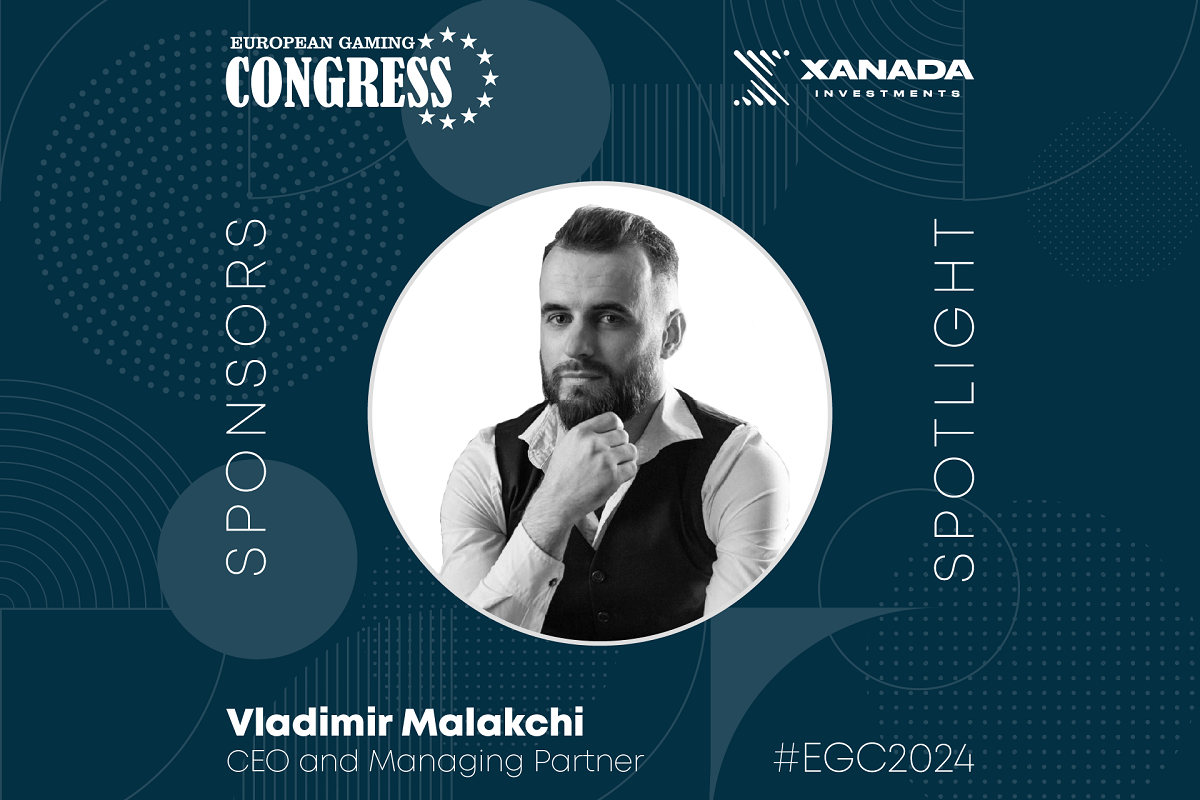
The European Gaming Congress (EGC) returns to Warsaw for 2024 on 15-16 October, and organizer HIPTHER is proud to introduce the conference’s esteemed Sponsors – trailblazing professionals and innovative organizations that help make the magic happen! In this Sponsors Spotlight Interview, we are proud to welcome Vladimir Malakchi, CEO and Managing Partner at Xanada Investments.
Thank you for joining us for this interview Vladimir! Let’s introduce you and Xanada Investments to our readers: What inspired you to create an investment fund with such an ideological and philosophical approach?
Thank you for having me! The idea for Xanada Investments came from my extensive experience in the industry, where I witnessed firsthand how many promising startups struggle—not just due to a lack of funding, but because they lack proper strategic support and long-term vision. Over the years, I saw how typical investment funds often limit themselves to providing capital, without addressing other crucial aspects of business growth.
This inspired me to create a fund that goes beyond the traditional investment approach. At Xanada Investments, we focus not only on financial backing but on building an ecosystem where startups can grow together, share knowledge, and support one another. Our philosophy is centered on mutual growth. Every project in our portfolio receives more than just capital; they gain access to strategic consulting, a network of industry contacts, expert resources, and development opportunities.
It’s not just about the success of one project—it’s about creating a community where every participant contributes to the overall success of the Xanada ecosystem. Our goal is to ensure that our investments not only help businesses grow but also elevate the entire industry by setting new standards and driving innovation.
Your investment philosophy focuses on mutual growth within your portfolio. Can you share an example of how your approach has fostered collaboration between different projects under the Xanada umbrella?
At Xanada Investments, we strive to build a diversified ecosystem by supporting projects of different types, sizes, and stages of development. Our current portfolio consists of five projects, all carefully selected from over 150 applications. We invest significant resources in understanding each project and offer tailored support to ensure successful partnerships.
While we maintain an individualized approach for each project, collaboration within our portfolio is key to accelerating growth. By working together, our projects are able to share insights, resources, and strategies, allowing them to achieve significant results faster. This collective effort not only strengthens each project but also enhances the overall ecosystem, ensuring mutual success.
With Xanada Investments primarily focusing on startups within the iGaming sector, what trends do you foresee shaping the future of this industry in the next 2-3 years?
The iGaming industry is going through an exciting period of change, driven by new technology and shifting player needs. One trend we see is the growing use of AI and machine learning to create more personalized gaming experiences. Startups are using AI to make gameplay and marketing more tailored to individual players. Another big focus is on player retention. With more competition, companies are using gamification, social features, and real-time engagement to keep players interested.
At the same time, there’s increasing attention on following regulations and promoting responsible gaming. As rules become stricter in different regions, startups that can stay compliant while still offering great experiences will have an advantage. The future of iGaming will belong to those who can innovate responsibly while meeting players’ changing needs.
You emphasize the importance of a strong team and leadership in your investment criteria. What are the top qualities you look for in a startup’s leadership team when considering an investment?
No matter how great the idea or technology, at the end of the day, it’s the people behind the project who make the difference. We invest in people—their experience, potential, and vision. The leadership team is the backbone of any startup, and we believe that a strong team is key to a project’s success. We look for resilience and adaptability—qualities that help a team navigate challenges and pivot when necessary in today’s fast-changing market.
We also value experience—leaders who know their industry well and understand how to manage its complexities. They must be hands-on and not afraid to get involved in every aspect of their business. Integrity is crucial, along with a collaborative mindset, both with us as investors and within the broader ecosystem of startups. These are the qualities that set successful teams apart.
Beyond financial support, Xanada offers strategic consulting to its startups. Can you elaborate on the specific types of support that have the most impact on helping these companies scale?
At Xanada Investments, we understand that successful startups require the right guidance and strategic support to scale effectively. We provide comprehensive consulting services that encompass various aspects of business growth. Our strong network of top industry experts also offers insights in key areas such as marketing, sales, and business development.
This community of experts plays a crucial role in our support system, helping startups analyze their current challenges and develop tailored strategies for growth. We work closely with our startups to create robust business strategies that integrate all critical components, ensuring a cohesive approach to scaling.
You’ve expressed plans to invest in 10-15 projects within the next year. How do you prioritize which projects to invest in, and what excites you most about this upcoming batch of investments?
As we look ahead, our goal is to invest in 10-15 projects that will help us build a diverse ecosystem, driving deep, foundational growth for each company. We believe that a robust ecosystem made up of various types of businesses enhances our collective strength, allowing us to offer a range of innovative solutions. We are particularly focused on finding startups in game development, casino operations, and player retention strategies.
What excites me most about this upcoming batch of investments is the talent and creativity we are seeing in these areas. We are actively seeking startups that provide relevant solutions to the iGaming industry, addressing specific pain points and offering viable business models. By concentrating on these critical areas, we are positioning ourselves at the forefront of industry innovation and ensuring our portfolio companies have the resources they need to scale effectively.
You recently launched the Xanada Startup Contest. What were the key drivers behind this initiative, and what do you hope to achieve by giving startups this platform?
The Xanada Startup Contest was created in response to the challenges many startups face in today’s market. We observed that while there are numerous startups with incredible potential, they often struggle due to a lack of resources and proper guidance. This competition was designed to bridge that gap by offering a solution that goes beyond just financial support.
What makes our contest unique is that it provides more than funding—it offers a platform for continuous learning and development. We want to ensure that startups not only receive capital but also the tools, mentorship, and strategic insights they need to maximize their potential. The contest also gives visibility to deserving startups that might otherwise go unnoticed, helping them connect with industry leaders and gain the consulting support they need to scale effectively. Our goal is to create a lasting impact by empowering startups to succeed in the long term.
Given the challenges faced by startups in securing both funding and guidance, what advice would you offer to early-stage entrepreneurs looking to break into the iGaming sector?
My biggest piece of advice is to focus on building a strong team and a clear, scalable business model. Investors are not just looking for great ideas—they want to see that your startup can execute and grow. Be prepared with detailed financial projections and a solid understanding of your market. Finally, seek out mentors and advisors who have experience in the industry. The right guidance can make all the difference in navigating the complexities of the iGaming space.
As an investor and former gaming executive, what do you believe is the biggest challenge currently facing the iGaming industry, and how is Xanada Investments positioning itself to address these challenges?
One of the biggest challenges in the iGaming industry is player retention. With so many options available, keeping players engaged long-term is becoming increasingly difficult. At Xanada Investments, we’re positioning ourselves to tackle this by investing in startups that focus on innovative engagement strategies, such as real-time personalization, gamification, and social elements that enhance the player experience. Additionally, we’re helping our portfolio companies optimize their operations and user acquisition channels to stay competitive in this fast-paced industry.
Vladimir Malakchi will be speaking in an exclusive Fireside Chat with HIPTHER’s Co-Founder Zoltan Tuendik at the European Gaming Congress, “Mythbusting Investment in iGaming: Missed Opportunities and Xanada Investments’ Vision for Startup Success”.
Join us in Warsaw and meet Vladimir in person:
Interviews
Taking a deeper look at the role of front end development

Danny McAllister, Front-end developer at Silverback Gaming, on why it’s such an important part of the slot production process
There are lots of different aspects to game production but what does front-end development cover?
The front-end team is responsible for bringing the creative aspect of the game to life. Our main focus is to take all artwork, animations and sounds and transform them into a playable game. This includes programming all the interactivity, responsiveness and performance of the game to ensure it delivers a thrilling experience on all devices and in all orientations. The front-end team is also responsible for translating each of our titles into 32 different languages. If that isn’t enough to keep us busy, we manage all the in-house tooling and internal sites, too.
Just how important is front-end development to the overall slot experience the player receives?
I’m a little biased here, but, in my opinion, it is incredibly important, especially in the online casino industry. Why? Because for new players, the entire game is the front-end client. It’s what they see with their eyes that draws novice players to a game, not an understanding of bonus features, volatilities and RTPs. Nor do they know how the random number generator works, and this can lead to issues where new players don’t trust the game’s outcome, especially how it pays out. Front-end development is therefore vital to engaging players and then building trust within the game, the studio behind it and of course the online casino that offers it.
What specific challenges do you encounter with front-end development?
Ensuring the game plays perfectly. At Silverback Gaming, we have set the bar incredibly high for each of our slots. When you throw in the multitude of devices, operating systems and browsers that slots can be played on, achieving this standard is easier said than done. I’d say that 95% of the time we don’t encounter any issues but occasionally we do, and it’s usually around a very particular device/browser combination. But through our development processes and talented team, we can always find a solution.
Another issue we face is getting Google Translate to understand context when generating translations for our in-game texts. We use it as a first pass for translations and then make the necessary modifications as needed. A good example is the word “close” – it can either mean proximity or an action of closing something open. When the word is singularly translated, Google often gets the content wrong. With our games translated into 32 languages, this can be a laborious issue to overcome.
How do you overcome the challenges faced with front-end development?
So, each time we find an issue with a particular browser, we can detect the exact browser version along with other device-specific information. This allows us to act accordingly to prevent said issue in the future – we do this by making the fix in our framework and then never see it again. But it is a bit like whack-a-mole since we can’t control what device our game is being played on, nor can we ensure every issue on every browser version is covered. Of course, the more faults we find, fix and amend in the framework, the fewer issues we can potentially stumble over.
When it comes to translation context, we are about to try an LLM to translate our text which can be prompted with context before translating. This comes with its own challenges, such as non-deterministic results from the LLM, but it’s a step in the right direction.
Does front-end development present opportunities for innovation?
At Silverback, the way we approach innovation is through collaboration and regular brainstorming sessions with all teams present. It was in one of these meetings that we came up with the idea for our unique ClockwaysTM mechanics. In the front-end team specifically, we have hack-a-thons where each member of the team works on something of their choosing for one day. At the end of the day, we have a “show and tell” which has generated some really clever concepts that have ultimately made their way into our processes and even games.
In addition, the front-end team works on server-side functionalities using NodeJS. We have a powerful command line application tool plus a bespoke full-stack framework which allows us to create internal tooling including server proxying which allows us to develop independently from the back end where necessary.
Is this an area where studios can stand out from their rivals?
Absolutely. Because our front-end team can also dip into the full stack territory, they can make progress in areas where some of the competition may not be able to do so quite as easily because of a hard separation between the front-end and back-end. Our bespoke framework also provides unrivalled flexibility and proved instrumental in the development of Clockways, which is truly unique.
How are the latest devices allowing you to push boundaries?
Today, devices are incredibly powerful and can now deliver a highly engaging player experience. I have been developing slots since 2013, and I am amazed at the capabilities of the latest smartphones, especially when it comes to playing animations on the screen simultaneously. But that’s not to say we can sit back and take it easy while the devices do the hard work for us. We need to continue to optimise where possible and push boundaries to make use of the device’s full capabilities. At Silverback, we are laser-focused on creating the best possible player experience for all of our games and on all devices.
Any final thoughts?
Yes. I’d like to quickly touch on artificial intelligence. As a studio, this is something we have embraced and are looking for the best places to integrate it into our workflows – the translation of content touched on earlier is a great example – to improve our games. But that doesn’t mean AI belongs everywhere and we will only use it where it makes sense to. I’ve been keeping a close eye on LLMs for some time but only now do I believe they are at the point where they can genuinely be used by the front-end team.
Interviews
Altenar: Boosting revenues with engagement tools
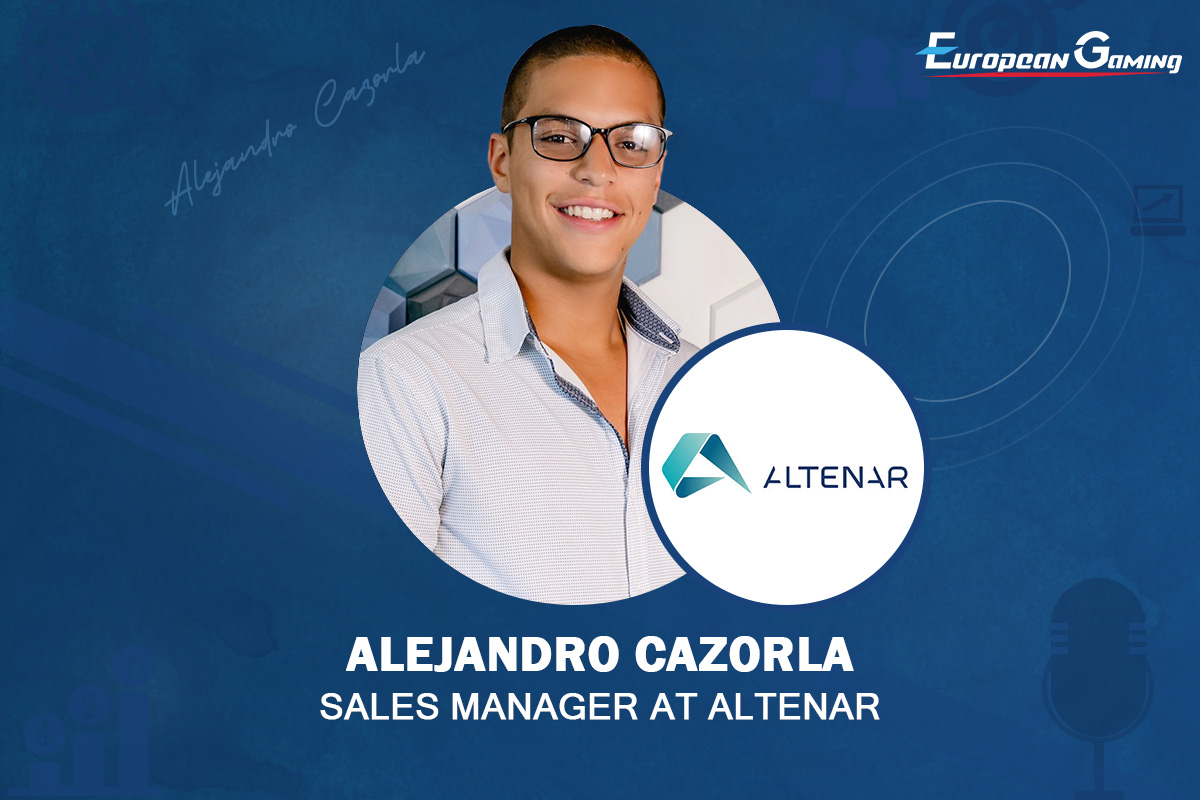
Turnkey and white-label sportsbook provider Altenar has doubled down on its efforts to improve player engagement and retention for customers this year. With the launch of an intriguing line-up of new tools, including their Bet Boost, Rewards System and Proprietary Bet Acceptance product, Alejandro Cazorla, Sales Manager at Altenar, provides insights into why operators should focus on increasing customers’ lifetime value as the price of acquisition continues to rise.
Why did Altenar decide to focus so heavily on their engagement tool offering this year?
In today’s highly competitive iGaming markets, sportsbook operators must constantly differentiate themselves to attract players. With a number of sportsbooks demonstrating how high costs associated with building their player base can eat into profits, one crucial strategy to combat this is integrating innovative engagement tools that have the power to cross-sell, retain and onboard new players. With the average acquisition costs increasing year over year, these tools are essential to not only enhance the overall player experience but also drive customer loyalty, increase revenue, and foster an engaged audience.
Engagement tools play a pivotal role in creating a more personalised experience for sportsbook users, with widgets such as Altenar’s Bet Boost enticing them to try new markets. By offering a variety of these features, operators can captivate players and even encourage online casino customers to give sports betting a try. Engagement tools have the power to transform a sportsbook into a dynamic platform.
Keeping players engaged during quieter periods and securing their custom during highly competitive sporting events is essential for profitability. How does the Bet Boost widget achieve this?
Tools that enable operators to highlight certain odds and boost winning potential can help drive higher revenues. Our Bet Boost widget enables operators to enhance odds to a selected level for promotional purposes during major events, or to combat losses during quieter periods, to increase bettor engagement. Boosts can be applied automatically or manually within events and provide flexibility and customisation options.
We developed Bet Boost to enhance competitiveness in the industry, particularly for popular events. By offering boosted odds that significantly increase prizes on specific selections, this tool creates excitement and provides players with the opportunity to win larger payouts. This, in turn, can lead to increased betting activity and higher revenues for our sportsbook partners. Additionally, the tool’s flexibility allows operators to target specific events or markets, tailoring promotions to suit the local audience.
Friction in the user experience can cause even the most loyal customer to become frustrated. How is Altenar combating this?
Most people are familiar with the feeling of having something in their online shopping basket, only for it to refresh and become unavailable. This is a bugbear many bettors have faced with their bet slips, only to get to their final bet and see the odds refresh, forcing them to start over again. With the new Proprietary Bet Acceptance tool, Altenar has created their own algorithm to allow operators to determine the odds and tackle this frustrating hurdle for customers. This limits friction in the wagering process and gives operators an automated technology with which to determine whether to honour the previous odds available or continue to refresh the bet slip if the risk is too high.
Anticipation is a feeling commonly associated with online casino players. How can operators recreate this emotion for the sports-betting vertical?
The feeling of anticipation and reaching rewards is a familiar and welcome experience for online casino players, with progress bars and promotional tools encouraging longer or more frequent gaming sessions. With the introduction of our new Rewards System, Altenar takes bonuses to the next level by offering players a chance to win a progressive prize from a pool.
Operators can decide when the jackpot is hit, for example if a certain footballer scores during a game, or if the prize pool reaches a predetermined amount. The winnings can go to a single bettor, or smaller prizes may be shared between multiple players. The promotional tool is configured by the operator and is a powerful cross-selling tool, offering familiarity to casino-only players.
-

 Blockchain7 days ago
Blockchain7 days agoInnovation in the Casino Industry: Top Tech Trends Transforming Online Casino Industry in 2024
-

 Eastern Europe6 days ago
Eastern Europe6 days agoAmusnet Enters into Partnership with Vivabet
-

 eSports6 days ago
eSports6 days agoBETER launches its next-gen content with 10bet
-

 Industry News6 days ago
Industry News6 days agoTaDa Gaming Enlivens Gaming on the Go with Keno Bonus Number
-

 Conferences in Europe6 days ago
Conferences in Europe6 days agoAmusnet Showtime with Portugal’s Top Streamer at SBC Summit Lisbon
-

 Compliance Updates6 days ago
Compliance Updates6 days agoUpdated Gambling Guidelines: Why Safer Betting Is Your Best Bet
-

 Latest News6 days ago
Latest News6 days agoBetsson is Shutting Down Betsafe Sportsbook in Colorado
-

 Latest News6 days ago
Latest News6 days agoAMOURANTH PARTNERS WITH PLAYFAME FOR LAUNCH

